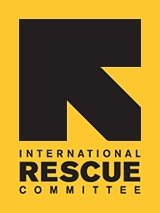BACKGROUND:
The IRC has been responding to the needs of refugees from the Great lakes Region in Western Tanzania since the early 90’s. The IRC had been providing assistance to the protracted refugee population in refugee camps in the areas of Health, Education, Community Based Rehabilitation, Women and Child Protection. With the resolution of these conflicts, many refugees returned home with closure of camps to leave only Nyarugusu camp (one of the oldest refugee camps in the world having been set up in 1996). In late April 2015, political tension around the presidential elections in neighboring Burundi sparked months of deadly protests and violence. As at the end of February 2016, more than 130,000 Burundian asylum seekers have fled into Tanzania. The IRC has been on the ground rapidly responding to the needs of asylum seekers in all pre-existent program areas. The health sector has thus undergone a rapid scale up of activities including emergency primary and reproductive health units, hygiene and sanitation as well as the establishment of health posts at Manyovu and Kagunga border entry points to provide health consultations for both refugees and host community members. IRC also manages the Kigoma Refugee Transit Center (RTC-Kigoma), including medical referral support for all the health partners operating in the old camp as well as the two new refugee camps of Nduta and Mtendeli reopened in October 2015 and January 2016 respectively.
A multi-sectoral approach is being employed through an outcome based implementation of programs in Health, Child Protection; Education; Women’s Protection; Community Based Rehabilitation and Host Community Projects on education, livelihoods and child labour. Most of these programs are directly implemented by the IRC in coordination with INGOs, local NGOs, UNHCR and other UN partners and the Government of Tanzania.
In Health, the IRC is working closely with the health agency in Nyarugusu and Mtendeli Refugee camps to support the delivery of reproductive health services to the new arrivals, with UNHCR and health partners in all three camps to ensure access to external medical care through the implementation of an interagency referrals program, running of a primary health clinic at the Refugee Transit Centre in Kigoma (RTC-Kigoma) and conducting medical screening and assistance to refugees arriving through 11 border entry points along the international border between Burundi and Tanzania.
SCOPE OF WORK: Reporting to the Senior Health Coordinator, the Deputy Health Coordinator will be responsible for the immediate implementation of IRC’s health program in Tanzania, working in collaboration with the senior Health Coordinator, Field Coordinators and entire health program team in the field. The Deputy Health Coordinator will ensure the continued implementation of quality primary and reproductive health care programming in IRC’s operational areas in Western Tanzania and other parts of the country.
S/he will provide technical support to the health program to ensure that IRC programs are of high quality and that programs are driven by data and learning, working in conjunction with other colleagues in the IRC Tanzania program. S/he will also play a strong role in mentoring and training the health team with a particular focus on M&E.
Job Title: Deputy Health Coordinator Reports to: Senior Health Coordinator
Location: Kibondo, Tanzania
Key Responsibilities:
Program management, Technical monitoring and Program Quality:
• In collaboration with the Senior Health Coordinator to provide technical supervision and guidance to IRC primary health care programming (including Reproductive Health and Mental Health) including medical referrals
• Ensure that the health projects in Tanzania utilize standardized protocols, policies and guidelines, as outlined by the Ministry of Health and Social Welfare (MOHSW), UNHCR, SPHERE, and WHO health standards in emergencies. Ensure that all activities are consistent with established best practices.
• Oversee the collection and timely reporting of data and statistics for primary health care programs in line with IRC’s REL (Research, Evaluation & Learning) guidelines and according to internal and donor requirements;
• Ensure that the stated goals and objectives of primary health care projects are met with strong monitoring and evaluation (M&E) follow up, including any required operational research, with technical support from the Health Information Management team in New York Health Unit and the Country Technical Advisors for health and nutrition as needed.
• Participate in the technical assessments as a basis for primary health care program development.
• Monitor evolving needs of the target communities and adjust the programmatic priorities as necessary;
Grants Management and Program Development:
• Assist with the preparation of a realistic budget, authorizing and monitoring expenditure in line with the budget, donor guidelines and IRC’s grant management and financial regulations; Where necessary, in collaboration with program managers, revise plans and budgets to maintain program quality and progress; work with the Health Team ensure that all program activities are implemented in compliance with donor requirements.
• Collaborate with other in-country program teams to ensure an integrated strategy to achieve health outcomes as in the country’s SAP;
• Assist in developing program and project proposals, including the use of IRC theories of change, logical frameworks, program design and implementation plans and SMART indicators for the IRC Tanzania health program in consultation and collaboration with field-based technical and management staff and the M&E sector.
• Support in producing quality reports to different donors
Emergency Preparedness and Response
• Participate in the revision of the IRC Emergency Preparedness and Response Plans
• Monitor data from the camps on disease trends (IDSR, UNHCR HIS and MOHSW MTUHA) and take the necessary steps to prevent disease outbreaks in the target populations.
• In the event of an outbreak, work with the Senior Health Coordinator to ensure that the ERTs are deployed, medical supplies and drugs are available to manage the outbreaks.
Staff Development:
• Participate in the development of staff development plans based on performance reviews in collaboration with the human resources department and contribute to the training of health staff (mentoring, as well as formal trainings).
• Develop/organize training opportunities to build the capacity of the health staff and local partners in order to transfer skills.
• Provide technical support and participate in reviewing health program staff performance reviews
• Develop and implement continuous staff capacity building plan to ensure quality gender-sensitive programming;
• Provide timely and quality performance evaluations;
Coordination, representation and advocacy:
• In the absence of the Senior Health Coordinator, Represent IRC Tanzania in external Health related forums;
• Actively develop and maintain effective working relationships with key stakeholders in Tanzania including donors, government actors, UN agencies (especially UNHCR), international and local NGOs, and other relevant actors
• Participate on integration of health activities with other sectors including, but not limited to livelihoods, community based rehabilitation, child and women protection
Required Qualifications, Experience & Competencies:
• Medical degree in health e.g. MBChB, MD, MBBS. Advanced degree in Public health is highly recommended
• Knowledge of Mental Health and Psychosocial Support practices highly recommended
• Some knowledge of Reproductive Health considered a plus
• Minimum 5 years experience in primary health programs in resource poor settings with at least 3 years in project management position. Previous INGO experience in humanitarian or development contexts; previous emergency response, conflict/post-conflict experience preferred
• Must be knowledgeable of ECHO, UNICEF, UNHCR, WHO procedures and familiar with their approach and strategies.
• Experience and competency in proposal development, report writing and grant management.
• Competent in Windows, MS office programs, email and database (HIS, EPI-Info etc) experience.
• Strong communication, people management, organizational and analytical skills.
• Fluency in English and Swahili, spoken and written- a must
• Ability to work in complex emergency environment, multitask, manage pressure and flexibility
• Good interpersonal skills to work effectively with different stakeholders including different communities in the target areas, humanitarian actors, service providers, local and national authorities;
NB: Your CV should include 3 referees
Pls attach your copies of academic certificates before applying

